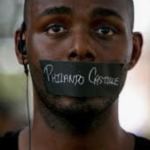Surviving a Police Encounter as a Concealed Carrier
 If a law enforcement officer stops you and you are legally carrying a firearm on your person or in your vehicle, should you inform the officer? And if so, how should you tell them?
If a law enforcement officer stops you and you are legally carrying a firearm on your person or in your vehicle, should you inform the officer? And if so, how should you tell them?
Every patrol officer fears being shot in the line of duty, and every time an officer initiates a traffic stop, they risk having an encounter with an armed criminal who intends harm. Civil rights attorney Lorenzo Banks says, “Just like you get nervous when you’re getting pulled over… this officer is kind of nervous.” It means most traffic stops begin with both parties feeling tense.
The mission of D.O.P.E. the Movement is to help officers and citizens De-escalate Officer Patrol Encounters. D.O.P.E.’s founder, retired Oklahoma City Police Lieutenant Stan Campbell, says that citizens can ease the tension at the beginning of a law enforcement encounter by demonstrating through words and actions that they are not a threat and that they care about the officer’s safety. With this in mind, as a veteran of law enforcement, Stan believes that informing an officer of a lawfully concealed firearm at the beginning of an encounter often increases the tension rather than de-escalating.
In 2016, officer Jeronimo Yanez of the St. Anthony, Minnesota Police Department stopped motorist Philando Castile for a broken tail light. Dash camera video shows that the encounter began cordially. After being asked for his license and insurance, Castile says, “Sir, I have to tell you I do have a firearm on me.” The officer’s demeanor changes from cordial to concerned after Castile’s disclosure. “Don’t reach for it then!” the officer says. There is a short, terse verbal exchange before officer Yanez draws his pistol and fires into the vehicle. Evidence suggested that Castile was reaching for the documentation the officer requested, but Yanez feared he was reaching for the gun. Castile died from his wounds, and Yanez was found guilty of second-degree manslaughter.
Castile wasn’t legally required to disclose to the officer that he was carrying a firearm. Minnesota is a “Notify-When-Asked” state which means lawfully carrying citizens are not legally required to tell an officer about a firearm unless specifically asked. Stan references the Castile case as an example of how disclosing the presence of a firearm could quickly devolve into tragedy. “Had Castile not mentioned the firearm,” Stan says, “it’s likely the stop would have continued cordially, and Castile would have driven away with a ticket and without the concealed weapon ever becoming an issue.”
Some states have statutes requiring that concealed carriers notify patrol officers if they have a firearm during a traffic stop. In these “Duty-to-Inform” states, Stan says citizens are legally required to disclose when they are carrying, but he also notes there are ways to do it without unnecessarily escalating the tension of the encounter. If there is time before the officer approaches, a motorist can have their concealed carry permit readily available along with their license. Stan says that mentioning the words “firearm” or “gun” may increase tension. Instead of saying, “Sir, I have to tell you I do have a firearm on me,” as Castile did, Stan suggests a motorist could say, “Officer, I want to let you know I am a concealed carrier.” It is a way to comply with the law without unnecessarily escalating the encounter.
More important than the words a motorist says is what they do with their hands. Motorists who disclose to an officer that they are armed should make sure the officer can see both of their hands, perhaps by grasping the top of the steering wheel. They shouldn’t make any sudden movements. A well-trained officer will give specific instructions, and motorists should comply slowly, asking permission before each action. In Castile’s case, he continued to reach for his documentation after disclosing he was armed, and the miscommunication that followed tragically cost him his life.
Concealed carriers have a responsibility to know whether they are in a “Duty-to-Inform” state, a “Notify-When-Asked” state, or whether they have complete discretion. The website worldpopulationreview.com has a list of the states that fall into these categories for quick reference, but you should also directly research the statutes where you live (some counties in California, and the municipality of New York have laws that supersede state law).
Responsible citizens often feel they have a duty to disclose if they have a firearm during a police encounter, but in most states, this is not a legal obligation. As the Castile case demonstrates, unnecessarily disclosing that you have a firearm might only serve to increase the tension of an officer patrol encounter. If your state or local government mandates legal disclosure, there are ways you can present the information without unnecessarily alarming the officer or increasing the danger to yourself. In other states, where the law gives you discretion, you can decide if, when, and how to disclose that you are armed. However, you proceed, if you demonstrate that you care about the officer’s safety by keeping your hands visible, if you communicate your intentions before you make any movements, and if you comply with the officer’s instructions, you will be much more likely to have a positive officer patrol encounter – even if you end up getting a ticket.
 SHAWN VINCENT – LITIGATION CONSULTANT
SHAWN VINCENT – LITIGATION CONSULTANT
Shawn Vincent is a litigation consultant who helps select
juries in self-defense cases, and he manages public interest
of high-profile legal matters. If you have any questions for
Shawn, or would like topic specific articles, please send your
request to dopethemovementinfo@gmail.com attention Shawn Vincent Articles
Leave a Comment
You must be logged in to post a comment.
